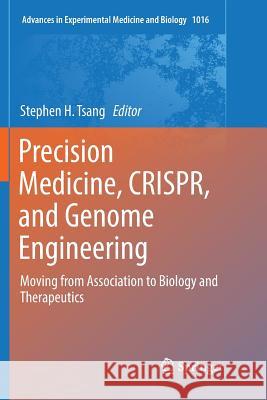Precision Medicine, Crispr, and Genome Engineering: Moving from Association to Biology and Therapeutics » książka
topmenu
Precision Medicine, Crispr, and Genome Engineering: Moving from Association to Biology and Therapeutics
ISBN-13: 9783319876672 / Angielski / Miękka / 2018 / 178 str.
Precision Medicine, Crispr, and Genome Engineering: Moving from Association to Biology and Therapeutics
ISBN-13: 9783319876672 / Angielski / Miękka / 2018 / 178 str.
cena 805,10
(netto: 766,76 VAT: 5%)
Najniższa cena z 30 dni: 771,08
(netto: 766,76 VAT: 5%)
Najniższa cena z 30 dni: 771,08
Termin realizacji zamówienia:
ok. 16-18 dni roboczych.
ok. 16-18 dni roboczych.
Darmowa dostawa!
Kategorie:
Kategorie BISAC:
Wydawca:
Springer
Seria wydawnicza:
Język:
Angielski
ISBN-13:
9783319876672
Rok wydania:
2018
Wydanie:
Softcover Repri
Ilość stron:
178
Waga:
0.27 kg
Wymiary:
23.39 x 15.6 x 1.02
Oprawa:
Miękka
Wolumenów:
01
Dodatkowe informacje:
Wydanie ilustrowane











